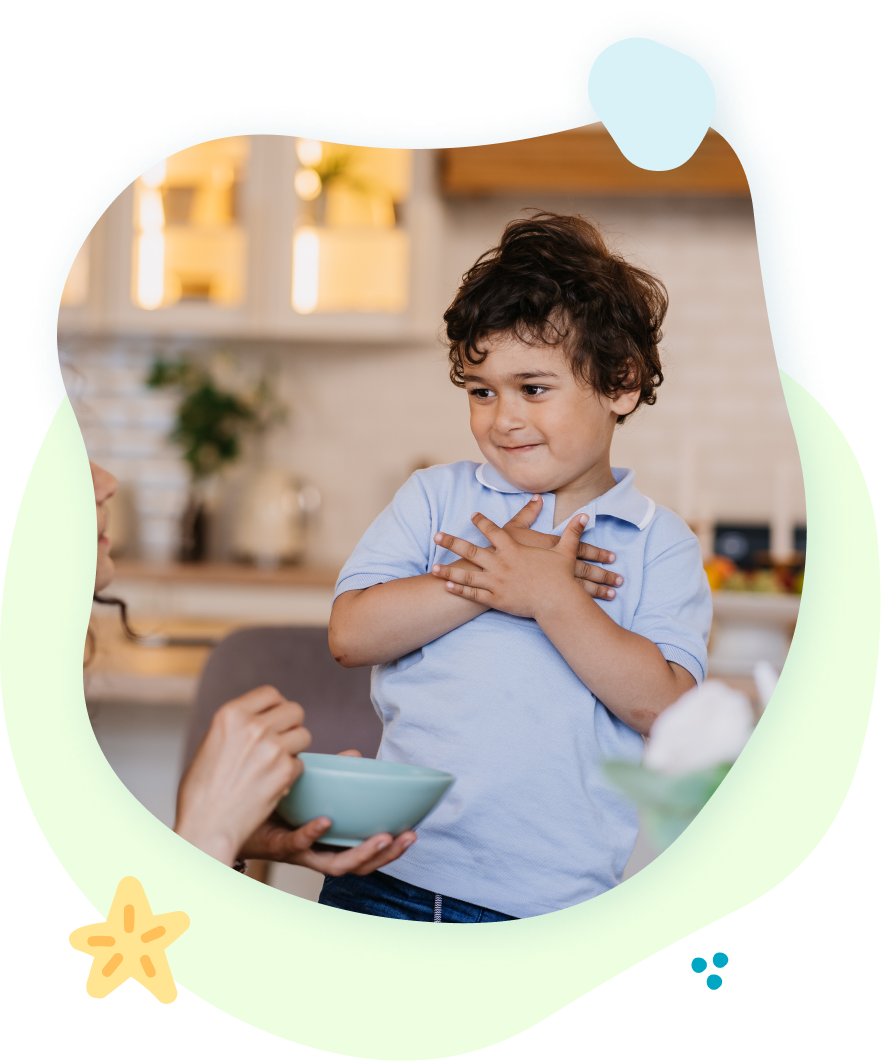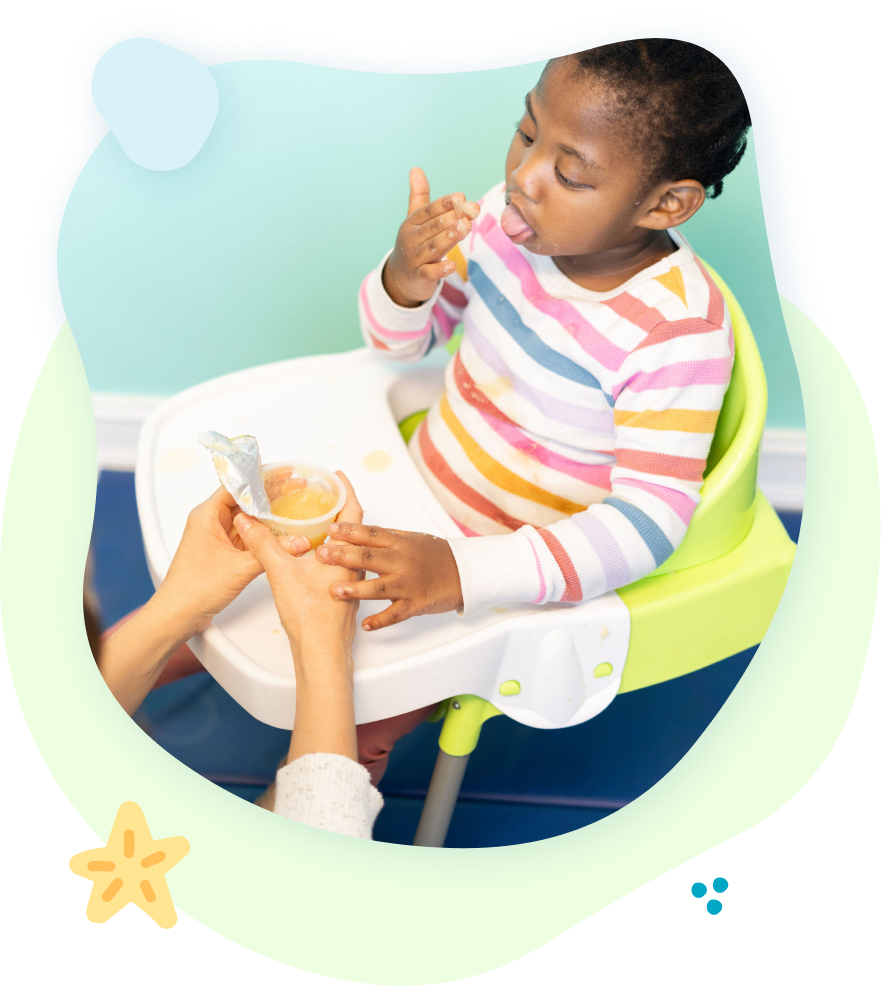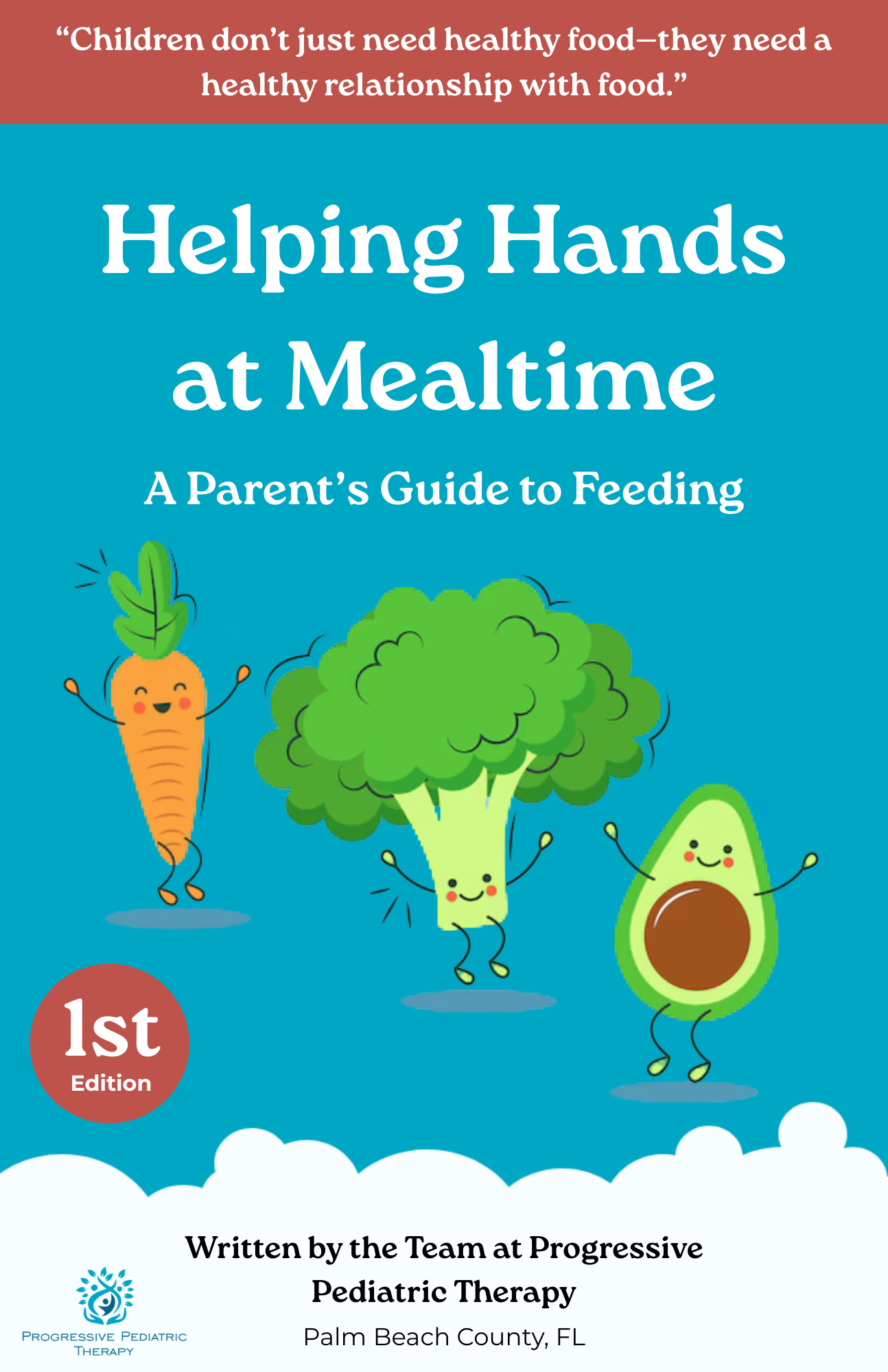Your Clinic
SET A LOCATION
Your Clinic
SET A LOCATION
We offer specialized feeding therapy provided by skilled occupational therapists and speech-language pathologists.
Sometimes, children have significant difficulty during meal times and feeding, which is important for their nourishment, growth, development, and socialization. These difficulties present in many ways, including limited array of food choices, gagging or vomiting when eating, not able to sit still/remain seated during meal times, only accepting certain textures or colors of food, and outright refusal to eat. Children’s feeding challenges often arise due to oral motor/structural differences, postural irregularities, sensory differences, and behavioral components. Feeding therapy is designed to target the specific areas affecting the child’s ability to participate wholly in meal times, self-feeding, and family engagement.
Our feeding therapists provide in-depth evaluation of the child and family’s specific needs. Then, they design and implement interventions to target areas where the child and family will benefit most. Therapists work directly with the child, but also provide extensive training to the caregivers to carry over the strategies and skills at home.

While picky eating is a common, temporary phase involving mild food preferences, ARFID is a serious condition causing significant weight loss, nutritional deficiencies, and intense food anxiety that impacts daily life. Unlike typical picky eaters who maintain normal growth, children with ARFID experience persistent, long-term feeding challenges that don't resolve on their own.
Watch Ms. Margie explain ARFID to learn more about early intervention and how we can support your child.
Often, families with children who have significant feeding difficulties have no idea that there is help out there!
At Progressive Pediatric Therapy, we utilize a comprehensive assessment process to develop a personalized treatment plan to support your child.
25-35%
of typically developing children experience feeding challenges.
40-70%
of children with medical conditions and developmental disabilities face feeding difficulties.
20%
of all children from birth to 8 years old experience feeding challenges.

Depending on the needs of your child, at Progressive Pediatric Therapy we use the following approaches:
AEIOU Feeding Approach
Child-Led Play
Sensory and Behavioral Models
Vertical munching, clears spoon with upper lip; begin baby puree foods with baby cereal.
Begin open cup drinking; introduce lumpy and dissolvable solids, will begin to hold spoon.
Solid foods are child's primary nutritional source with tongue tip laterilization. Sometimes feeds oneself.
Eats most solid foods. Drinks from open cup and holds by self. Feeding self majority of the time.
Child eats nearly all foods. Skills are being refined and child is an independent eaters.
Feeding your child isn’t always as simple as following the milestones. And that’s okay. Whether you’re navigating picky eating, sensory sensitivities, or just everyday mealtime stress, you're not alone.
Download our free e-book, Helping Hands at Mealtime, and get expert-backed tools to:
Every child’s journey is unique. This guide will help you support yours with confidence.

We empower children, families, and the community to learn, grow, and celebrate every child's unique abilities.
Quick Links
Contact Details
Phone: 561-376-2573 | 561-918-0190
Fax: 561-218-4939
VIP Concierge: 561-717-1764
Clinic Locations
All Rights Reserved | Progressive Pediatric Therapy, Inc. | Privacy Policy | Terms of Service
Site by Spearlance